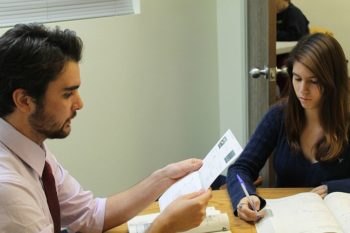 Planning Spring Play, Raising Lifetime Leaders
Planning Spring Play, Raising Lifetime Leaders
When the sun is out, the air is warm, and the birds are chirping, it’s time to beat those winter blues with outside play! While it is true that free play encourages imagination, allowing kids to “be bored” will unleash their creativity. There’s still lots to be said about helping children plan for play. As parents, modeling our thought process and questioning skills will help our children be decisive decision makers, become strategic planners, and develop leaderships skills. Consider the following scenario:
Phase 1 – Invite your child to be a decisive decision maker.
Child: Mommy, Daddy, can we play outside?
Parent: Sure, what would you like to do? Would you like me to help you think of ideas?
At this point, your child may very well say “No, thank you” to your offer of help. Imagine how empowered your child will feel because you gave him permission to say “No.” This is a very powerful step, as it communicates to your child that you trust him to be decisive in his decisions. He will continue to the next phase with a definitive idea for play all ready to go! [Read more…]

Discovering the joy of teaching while in high school, Jaime pursued her B.A. in English at Santa Clara University. She also received a teaching credential and a M.A. in Education Administration from Santa Clara University. Jaime taught English Language Arts at Rancho Middle School, motivating and inspiring young people to become effective communicators and contributors in their community. From being a Middle School English Language Arts/English Language Development teacher to becoming a stay-at home mom, Jaime is an education consultant who presents literacy workshops. Her workshops focus on a combination of her ten years of teaching expertise with tried-and-true experiences that she uses with her own children. Jaime is also a Teacher Consultant with the San Jose Area Writing Project. Jaime’s mission is to share effective reading and writing strategies with families to encourage literacy.
 Amy and Joe are madly in love with their baby daughter. They are full of dreams and aspirations for their daughter who they plan to raise in a traditional, two parent household. Joe is a 5th generation Californian with ancestors from Ireland and Germany. Amy is a third generation Japanese-American. Amy and Joe want their little girl to appreciate both of their cultures. Raising their daughter to enjoy a rich cross-cultural heritage can be enhanced when considering the following:
Amy and Joe are madly in love with their baby daughter. They are full of dreams and aspirations for their daughter who they plan to raise in a traditional, two parent household. Joe is a 5th generation Californian with ancestors from Ireland and Germany. Amy is a third generation Japanese-American. Amy and Joe want their little girl to appreciate both of their cultures. Raising their daughter to enjoy a rich cross-cultural heritage can be enhanced when considering the following: 


 Parents ensure that their children get enough sleep, make healthy food choices, and are ready to learn. Parents must also consider what they need to do for themselves for self-care. We are our children’s first and primary teachers. We should model the healthy lifestyle that we want our children to follow.
Parents ensure that their children get enough sleep, make healthy food choices, and are ready to learn. Parents must also consider what they need to do for themselves for self-care. We are our children’s first and primary teachers. We should model the healthy lifestyle that we want our children to follow. Over the years, my kids and I have participated in a number of community service opportunities as a family. Whether it be collecting canned goods for the local food pantry, cleaning up a local school, or raising money for animal conservation, there are a number of excellent activities suited for children. The experience of serving others and the world at large have given my children a perspective about their place in the world, namely that even though they are young, children can still make a difference.
Over the years, my kids and I have participated in a number of community service opportunities as a family. Whether it be collecting canned goods for the local food pantry, cleaning up a local school, or raising money for animal conservation, there are a number of excellent activities suited for children. The experience of serving others and the world at large have given my children a perspective about their place in the world, namely that even though they are young, children can still make a difference.